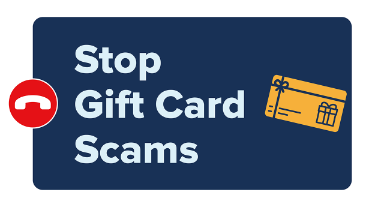
Scammers advertise jobs the same way legitimate employers do — online (in ads, on job sites, and social media), in newspapers, and sometimes on TV and radio. They promise you a job, but what they want is your money and your personal information. Here are some examples of jobs scams and tips to help you avoid them.
Work-from-home job scams
Many people would like to work from home and generate income. Scammers know this, so they place ads, often online, claiming that they have jobs where you can make thousands of dollars a month working from home with little time and effort. Sometimes the scammers try to get you interested by saying that you can be your own boss , start your own business, or set your own schedule.
But instead of making money, you end up paying for starter kits, “training,” or certifications that are useless. You might also find that your credit card is charged without your permission, or you get caught up in a fake check scam. If someone offers you a job and they claim that you can make a lot of money in a short period of time and with little work, that’s a scam.
Nanny, caregiver, and virtual personal assistant job scams
Scammers post fake job ads for nannies, caregivers, and virtual assistants on job sites. Or they may send emails that look like they’re from someone in your community, or who is part of an organization you know, like your college or university. If you apply, the person who hires you might send you a check. They’ll tell you to keep part of the money for your services and then send the rest to someone else. That is a scam. A legitimate employer will never ask you to do that. What happens next is that the check is fake. It can take weeks for a bank to discover this, but once they do, the bank will want you to repay that full amount. So: if you get an offer that includes depositing a check and then using some of the money for any reason, that’s a scam. Walk away.
How to Avoid a Job Scam
Before you accept a job offer, and certainly before you pay for one, take these steps to protect yourself from job scams:
- Do an online search. Look up the name of the company or the person who’s hiring you, plus the words “scam,” “review,” or “complaint.” You might find out they’ve scammed other people.
- Talk to someone you trust . Describe the offer to them. What do they think? This also helps give you vital time to think about the offer.
- Don't pay for the promise of a job . Legitimate employers, including the federal government, will never ask you to pay to get a job. Anyone who does is a scammer.
- Never bank on a “cleared” check. No legitimate potential employer will ever send you a check and then tell you to send on part of the money, or buy gift cards with it. That’s a fake check scam. The check will bounce, and the bank will want you to repay the amount of the fake check.
What to Do if You Paid a Scammer
No matter how you paid — debit or credit card, bank or wire transfer, gift card, or cash reload card — immediately contact the company you used to send the money, report the fraud, and ask to have the transaction reversed, if possible.
If you see or lose money to a job scam, report it to the FTC at ReportFraud.ftc.gov. You can also report it to your state attorney general.
Find out more about how to avoid scams at ftc.gov/scams.

Halloween is coming up! That means a lot of things: fun, costumes, candy, and trick-or-treating. It also means that as a parent, you might want to take a moment and think about safety for your kids during Halloween. We want Halloween to be a safe event for you and your family!
And don’t forget, if you are looking for a safe place to trick-or-treat this year, swing past C.O.P.S. West (1901 W Boone Ave) to get some candy and get your picture taken for a costume contest!
Here are some safety tips. Most are common sense, but it’s still a good idea to go over this list with your kids before you head out the door.
1. Make sure you go with your younger kids for their trick-or-treating. It’s easy to feel safe in our own neighborhoods and let them go without adults, but always play it safe and stay with them.
2. Look both ways when crossing the street and wait for cars to completely stop. Just because it’s Halloween, don’t assume that cars are paying attention to kids crossing the street.
3. As much as possible, stay in well-lit areas. Avoid alleyways and places that are dark.
4. Stay on the sidewalk and avoid walking in the street or on peoples’ yards.
5. Only visit homes who have their porch lights on.
6. Never go into a house to get candy.
7. Keep a cell phone on you and make sure your kids know to dial 911 in the event of an emergency.
8. Notify law enforcement immediately if you see any suspicious or unlawful activities.
9. Make sure someone knows where you are going.
10. Carry a flashlight or wear reflective material if you are able to help cars see you.
11. Avoid costumes that have sharp points or are so long they could cause you to trip and fall.
12. Masks are fun, but they make it hard to see. Consider face paint instead.
13. Check all candy to make sure it is sealed. Discard anything that appears to be opened, punctured, or tampered with.
Follow those guidelines and have a fun, safe Halloween with your family!




